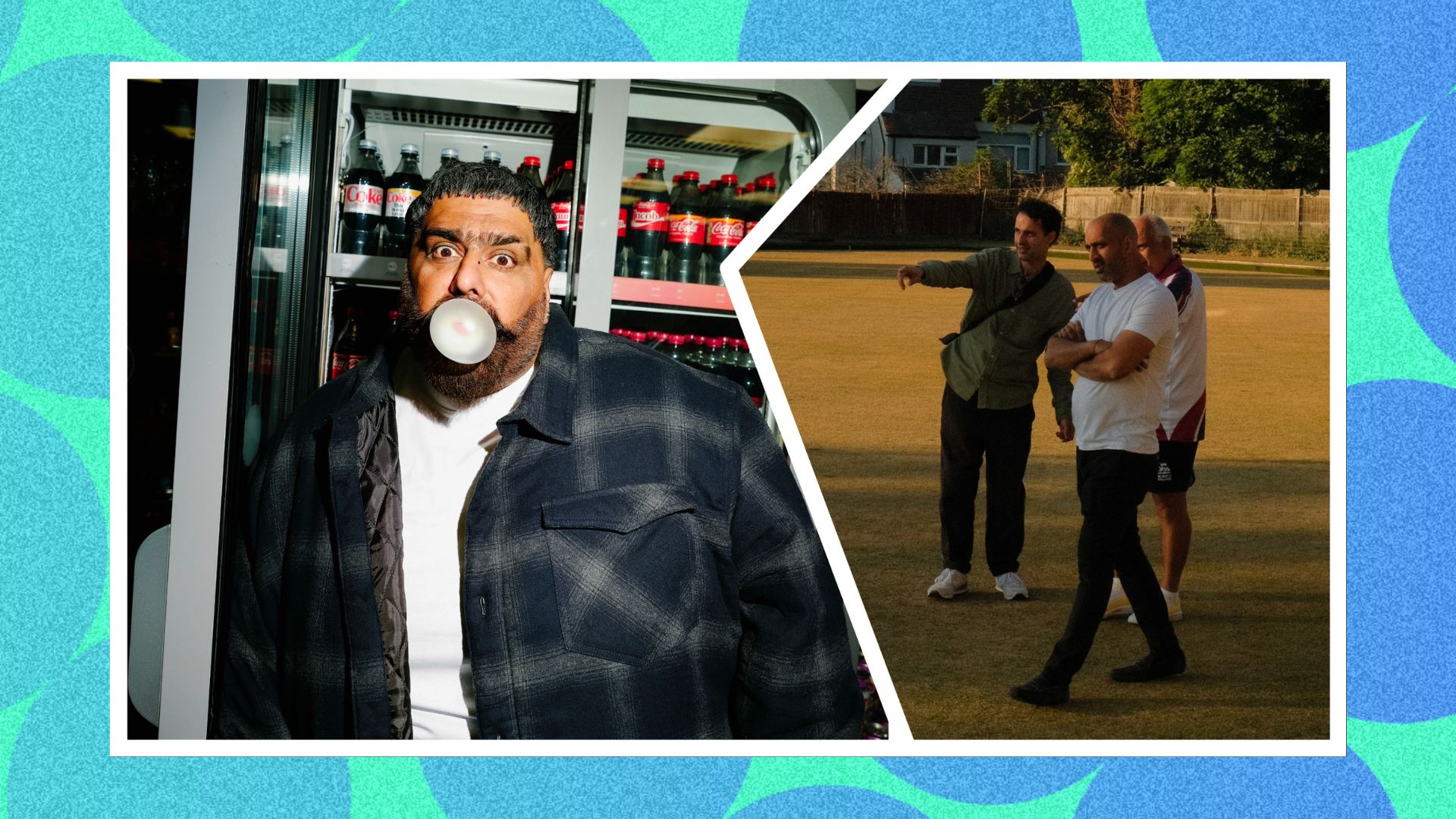"Mentors, problem-solvers, entrepreneurs in the highest sense": Meet the documentary maker challenging the perceptions of corner shop owners
Keep the change...


The corner shop may seem like a relic of a simpler time, but for many communities across the UK, it remains the heart of daily life.
In The Bosses series, multi-award-winning director Ross Bolidai shines a spotlight on the unsung heroes behind these vital spaces.
Working in collaboration with photographer Serena Brown and Coca-Cola, Bolidai has captured the resilience, personality, and sense of community that these corner shop owners provide, proving the shops are so much more than just a place to buy fizzy drinks.
We recently spoke with Bolidai, who shared his process and insights into the project, explaining how he and his team delved deep into the stories of six corner shop owners, portraying them as not just shopkeepers, but as pillars of their communities.
Through intimate filmmaking and a carefully crafted approach, Bolidai helps us understand these everyday spaces as the profound, emotional narratives that celebrate the human connections that are so often underappreciated.
1. A universal yet personal space
“We all know them, but they're also quite deeply personal... There’s one on every other street, and they’re all entirely different, and they all have these incredible stories,” says Ross Bolidai about corner shops.
The Bosses series centres on a key paradox: corner shops are universally familiar, yet deeply personal to each community.
Get exclusive shortlists, celebrity interviews and the best deals on the products you care about, straight to your inbox.
“The people behind these shops are not just running a business. They’re carrying communities, histories, identities on their shoulders,” he notes.
This perspective runs throughout the series, challenging the common view of corner shops as mere transactional spaces, positioning them instead as vital, emotional centres where shared experiences are created and memories are made.
2. Gaining trust through vulnerability
Bolidai’s documentary background shaped his approach to filming The Bosses series. He describes a slow, careful process of gaining the shopkeepers' trust before bringing a crew into their spaces.
“The first approach was, let’s talk to everyone. Let’s get them on the phone, chat for a couple of hours, and figure out their story. Then we’ll travel around the country, spend a couple of days with them to make sure their story really reflects who they are.”
This intimate method ensures the subjects feel heard before the cameras start rolling. Rather than just a quick interview, Bolidai takes the time to establish a personal connection, giving the shopkeepers space to tell their own stories.
“I don't want to just turn up with a massive crew," he says. "It’s the worst feeling in the world, looking straight into a lens. So really, it was a softly, softly approach.”
What’s particularly striking is how Bolidai makes himself vulnerable in the process. He describes how, in some cases, this created a bond of mutual openness.
“You give someone a voice, and suddenly they open up... I’ll share some of my vulnerabilities, and they share theirs.”
The result: a more honest, real exchange, which is at the heart of the emotional impact the series delivers.
3. Giving space for true narratives
One of the most important elements of Bolidai’s approach is the emphasis on allowing the true stories of the shopkeepers to emerge naturally.
“I always look for stories that feel ordinary on the surface but, when you dig in a little bit, you find something profound,” he says.
This focus on authenticity is evident in his filmmaking process. Bolidai reflects: “I spent hours just chatting with the owners, getting to know them beyond their roles as business people. It was about understanding their relationships with their families, the challenges they’ve faced, and what it means to be a part of a community.”
This deliberate, patient storytelling will remind viewers of their own bossmen, who likely deserves more love.
4. Pillars of the community
One of the most poignant insights Bolidai offers is the idea that corner shop owners aren’t just running businesses, they’re often the unsung heroes of their communities.
He describes them as “mentors, problem-solvers, entrepreneurs in the highest sense.”
“They’re often the first point of contact when someone needs help... the first person to step outside and break up a fight,” he says.
Bolidai's films show time and time again that through these everyday interactions, the shopkeepers become the glue that holds communities together.
5. The nostalgic allure of the local shop
Bolidai, throughout the series, taps into a profound sense of nostalgia that many people feel toward their local corner shops, noting “I remember going into corner shops when I was in year seven... It’s a mish-mash of sort of madness that you see on the shelves... they’re nostalgic to me, and the products are nostalgic to me.”
And in a world where technology and digital spaces dominate more of our lives, the doc reveals that the corner shop stands as a rare example of a physical, human-centred space that fosters connection.
“That offline familiarity of a shopkeeper who knows your name, I think, is really appealing.”
But what it really boils down to is the sense of both community and social continuity that a corner shop and their owners bring.
“Every community has several pillars around it, and the people who work in convenience shops are a very obvious example of that... they provide that day-in, day-out consistency.”
Through the lens of The Bosses, Bolidai gives us a glimpse into a more intimate, human side of retail that’s easy to miss — one that speaks to the values we hold dear in our everyday lives. which is something to remember the next time you head to your local to pick up some bits.
To view The Bosses series, head to Coca-Cola's official site now.

Morgan got his start in writing by talking about his passion for gaming. He worked for sites like VideoGamer and GGRecon, knocking out guides, writing news, and conducting interviews before a brief stint as RealSport101's Managing Editor. He then went on to freelance for Radio Times before joining Shortlist as a staff writer. Morgan is still passionate about gaming and keeping up with the latest trends, but he also loves exploring his other interests, including grimy bars, soppy films, and wavey garms. All of which will undoubtedly come up at some point over a pint.
You must confirm your public display name before commenting
Please logout and then login again, you will then be prompted to enter your display name.


